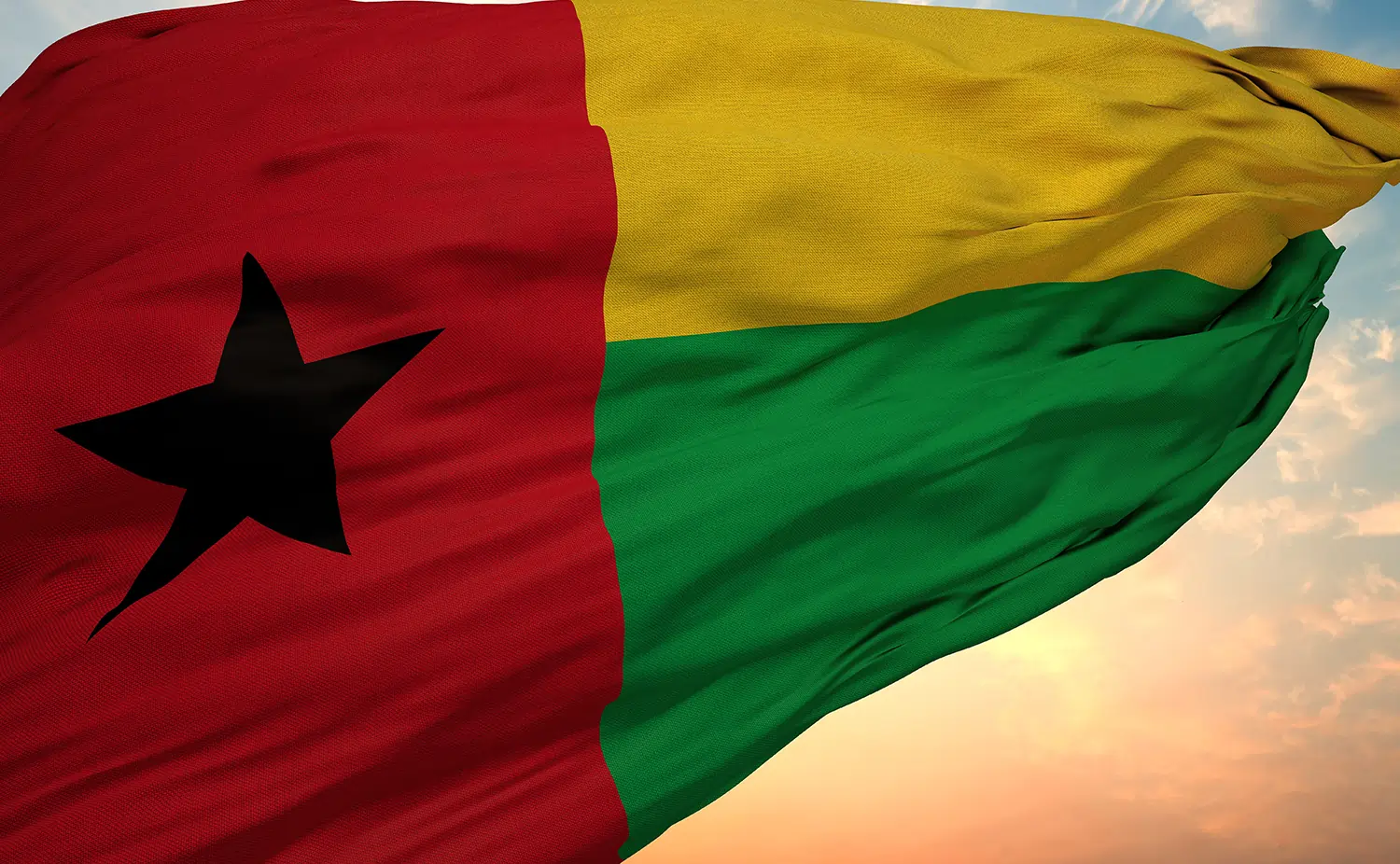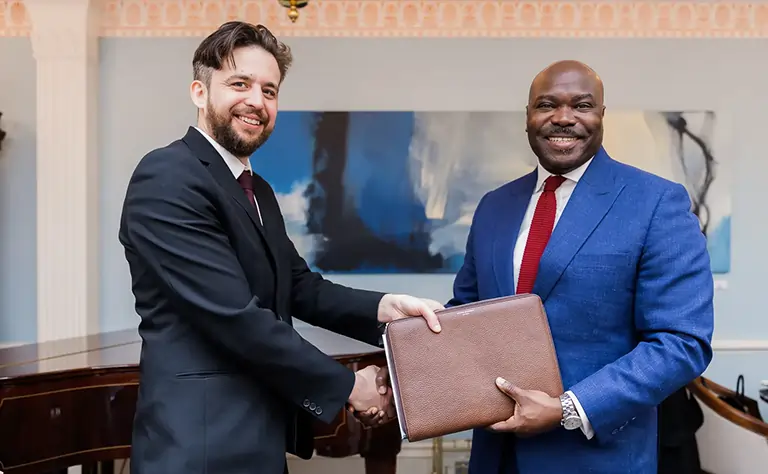Ghana is currently facing its worst economic crisis in a generation. The country’s inflation as of October 2022 was 37.8% year-on-year, while the Ghanaian Cedi has depreciated against the US-Dollar by 41% in 2022. Ghana’s fiscal and debt vulnerabilities are also worsening fast amid an increasingly difficult external environment, as Moody’s downgraded Ghana’s long term issuer ratings to Ca from Caa2 or further junk status on Wednesday, November 30, 2022 and changed the outlook to stable.
During the COVID-19 pandemic, Ghana’s public debt increased from 65 percent to 80 percent of GDP. At the same time, the government’s fiscal efforts to preserve debt sustainability were not seen as sufficient by investors, resulting in credit rating downgrades, non-resident investors leaving the domestic bond market, and a shortage of access to global capital markets.
The country is currently negotiating various means to turn this around and has proposed novel international trade settlement strategies like proposed Barter Trade with Refined Gold for Oil Products, in addition to more conventional methods such as requesting for a bailout from the International Monetary Fund (IMF).
Proposed Barter Trade: Gold for Refined Oil Products Exchange
On Thursday, November 24, 2022, Ghana’s Vice President Dr Mahamudu Bawumia stated that the Ghanaian government is negotiating a new policy regime, which is to be fully operational by the end of the first quarter of 2023, where the country’s gold will be used to buy [refined] oil products, as against the use of the country’s US-Dollar denominated Foreign Exchange reserves.
Dr. Bawumia noted that the primary motivation for this was to halt the country’s dwindling US-Dollar reserves, which will significantly reduce the persistent depreciation of the Ghanaian Cedi against the US-Dollar. He indicated that the highest demand for foreign exchange was by oil importers in the country and hinted that the successful implementation of the barter of sustainably mined gold for oil products will bring a substantial economic boost to the country. This is due to the associated increase in fuel, electricity, water and food prices which the country has experienced due to the depreciation of its currency.
The Vice President’s announcement came on the same day Ghana’s finance minister, Mr Ken Ofori-Atta’s warned that the nation was at high risk of debt distress and that the weakening Ghanaian Cedi was seriously affecting the country’s ability to manage its debt. He sounded this alarm during the 2023 financial year budget presentation made on Thursday, November 24, 2022 and also discussed several austerity measures to reduce the government’s expenditure – including a freeze on the employment of Civil and Public Servants and a freeze on tax waivers for foreign companies in 2023.
Ghana has relied primarily on imports for its refined petroleum products since its refinery was shut down following an explosion in 2017, while its US-Dollar Denominated reserves stood at US$6.6 billion in September 2022, equating to less than 3 months of import cover. This is down from US$9.7 billion at the end of last year according to the government, and provides the backdrop on which the barter of refined gold for oil products regime is being considered.
Further to the statement by the Vice President, the Minister of Lands and Natural Resources, Hon. Samuel A. Jinapor issued certain directives in line with the policy regime stating that all large-scale mining companies shall sell 20 percent of the refined gold at their refineries to the Bank of Ghana in Ghanaian Cedis before the export of the gold. All Community Mining Schemes and Small-Scale Gold Miners shall also sell all their gold output to the government through the Precious Metals Marketing Company (PMMC).
IMF Bail-Out Request
Ghana approached the International Monetary Fund (IMF) in September 2022 for an Extended Credit Facility (ECF), which is the Fund’s main tool for medium-term support to countries facing protracted balance of payments problems. The duration of such an arrangement is between 3 to 4 years and extendable to 5 years. Ghana requested a similar 4-year arrangement in 2014 which helped stabilize the economy at the time.
In line with the country’s debt-sustainability plan which is being worked out in a bid to meet the requirements for a loan from the International Monetary Fund (IMF), Ghana’s deputy Finance Minister, John Kumah, disclosed during a radio interview that it may consider asking holders of its international bonds to accept losses of as much as 30% on the principal and forego some interest payments.
Furthermore, he disclosed that the government is considering three-year suspensions of interest payments on foreign bonds and principal reduction. Domestic debt investors would be required to exchange their current securities for new ones that might offer a zero coupon in the first year, 5% in the second year, and 10% in the third year. Yields on Ghana’s US$1.2 billion 2032 Eurobonds also declined 41 basis points on Thursday, November 24, 2022 to 30.49%, which led to the eventual downgrade of Ghana’s long-term issuer ratings to Ca from Caa2 by Moody’s. Fitch also hinted that the country’s long-term issuer default rating would likely be lowered to RD, one notch above default, from CC, if the debt is restructured as part of the IMF talks, it told Bloomberg in an interview conducted in October 2022.
The Bail-Out request is currently being reviewed by the IMF, with Ghana working to possibly reach a formal agreement with the organisation by year-end.
Ghana is grappling with its worst economic crisis in decades, with inflation hitting 37.8% in October 2022 and the Cedi losing 41% against the US dollar. Amid rising debt and fiscal pressures, Moody's downgraded Ghana’s credit rating to Ca, highlighting the deepening challenges. #Ghana #Economy #Inflation #CurrencyCrisis
Future Outlook
Moody’s however maintained a stable outlook for Ghana on the assumption that the debt restructuring will happen in coordination with creditors and the IMF. This is supported by Ghana’s economic and institutional framework which reduces the risk of higher losses for private-sector creditors.
The intervention by the IMF in Ghana in 2015 had a positive outlook with the consequent narrowing of trade and budget deficits by 2019. The GDP growth rate increased to 6.51 percent in 2019 from 2.12 percent in 2015, while the inflation rate fell to an average year-on-year rate of 7.14 percent in 2019 from 17.15 percent in 2015. These major boosts were cut primarily due to the Covid-19 pandemic in 2020, which exposed the country’s frailties rising from its import-dependent economy and large reliance on foreign financing.
The Ghanaian government’s moves to cut wasteful spending, restructure its debts and find alternative barter trading arrangements to reduce its dependency on the supply of foreign exchange available to them is commendable and provides investors reason to be confident in the economy’s long term outlook. In addition to the improved strides made, Ghana should also do well to ramp up its local production and thus cut-down on its dependence on imports. The country’s foreign exchange earning ability can be further enhanced by adding value to the raw produce it exports e.g. Cocoa (i.e through conversion to semi-finished or finished goods). In addition, Ghana’s public and private sector should collaborate a lot more towards promoting the Nation’s diverse tourist attractions on a global scale and thus generate sustained interest in the country as a top tourism destination.





